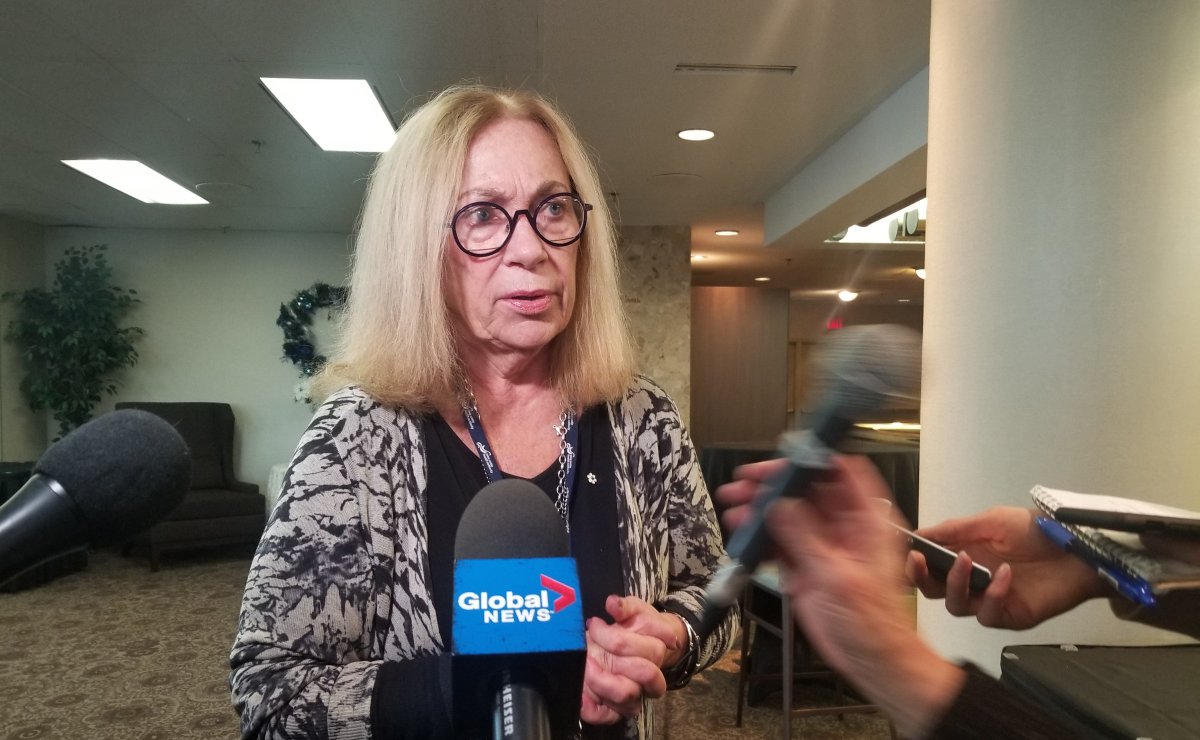A dramatic restructuring of the Nova Scotia Health Authority aims to reduce bureaucratic red tape and give more operational power to local communities, says its interim president.

Last week, the agency eliminated four existing vice-president jobs with the promise it would create four new leadership positions, one for every zone. The new zone vice-presidents would have operational authority, including their own budgets — allowing them to respond quickly, and independently to local health care needs.
“One of the things we’ve heard from the zones is the fact that they can’t make decisions on their own, that there’s undue process and bureaucracy,” Janet Davidson, the NSHA’s interim CEO and president, told reporters on Wednesday. “This gives them more autonomy to say there’s an issue.”
Davidson used the example of a chipped tile in a hospital lobby — prior to this change, central approval would be required to fix it.
Now, “you don’t have to make a request to a corporate office to get something done,” she explained.
READ MORE: Nova Scotia announces Dartmouth dialysis expansion amid concerns over patient displacement
Davidson updated the NSHA’s board of directors on the changes on Wednesday at a public meeting in Dartmouth. Part of her terms of reference when she took on the interim role was to revisit the organizational structure and come up with a plan that would result in better front-line decision-making.
The changes were finalized in collaboration with Dr. Brendan Carr, who will take over as president and CEO next month.
And while no formal consultation was done with health care workers, board chair Frank van Schaayk said there was a wealth of anecdotal evidence supporting the kind of restructuring the NSHA will undergo.
“I would say the feedback I’ve gotten as chair, for example, in the last year and a half — it was screaming at us that decision-making was out of balance in terms of centralized versus de-centralized,” he said in an interview.
The changes resulted in three existing vice-presidents being laid off last week, and the closure of a vacant position. The responsibilities of these four positions will be absorbed by the NSHA’s remaining VPs, which currently oversee portfolios including research and innovation, corporate services, and medicine.

Late on Wednesday, the NSHA released a new organizational chart reflecting the changes. The four new roles will be vice-presidents of operations and “medical leads” in the eastern, western, northern, and central zones. The central zone VP will also be assigned to clinical infrastructure.
The remaining VPs are of the heads of corporate services, infrastructure and the chief financial officer; communications, public engagement and stakeholder relations; medicine; research, innovation and discovery and chief nurse executive; and quality and system performance.
Davidson said she expects the new zone VP jobs to be filled, operational and fully costed by the Finance Department by next April, the start of a new fiscal year. That’s when she expects they’ll get their budgets, she added.
READ MORE: Nova Scotia to spend $7.5 million to expand dialysis unit at Dartmouth General
Health-care workers in Nova Scotia have long advocated for a decentralization of decision-making power in the province, and the restructuring was applauded by both the Progressive Conservatives and the Nova Scotia Health Coalition.
Both however, expressed concerns with how the decision was taken — quietly, behind closed doors.
“There should be open debate about this, and particularly when you’re talking about having more democratic control of our health care system, to have the decision made by one central single individual seems actually kind of hypocritical,” Chris Parsons, provincial co-ordinator for the Nova Scotia Health Coalition told Global News.
READ MORE: NSHA quietly changes medically assisted dying policy at Catholic hospital
Barbara Adams, Nova Scotia PC critic for seniors and long-term care, said she’s worried not enough attention has been paid to addressing staff shortages and resource-based service challenges.
“They’re starting at the top and trying to move down,” she explained. “What the health-care professionals would say is that you need to talk to the people on the ground and work back up to find out what is needed, because every health care professional will tell you, you need more staff working with their patients.”





Comments